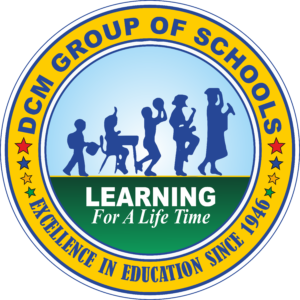Educators Life
Educators in a school equipped with modern gadgets, regular trainings, and a fusion of Gurukul and experiential learning approaches can experience a transformative professional life. Here’s how educators would benefit from such an educational environment:
1.Enhanced Teaching Practices: Modern gadgets provide educators with powerful tools to enhance their teaching practices. They can use interactive whiteboards, multimedia presentations, educational apps, and online resources to deliver engaging and interactive lessons. Technology allows for differentiated instruction, personalized learning, and the integration of multimedia elements, making teaching more effective and dynamic.
2.Professional Development: Regular training sessions and workshops enable educators to stay updated with the latest educational research, trends, and practices. They have opportunities to enhance their pedagogical skills, learn new teaching strategies, and explore innovative approaches. Training programs also provide a platform for collaboration and knowledge-sharing among educators, fostering a supportive professional community.
3.Integration of Gurukul Philosophy: The integration of Gurukul philosophy in the educational approach empowers educators to create nurturing and student-centered learning environments. They become mentors and guides, developing close relationships with students and supporting their holistic development. Educators can impart values, character education, and life skills along with academic instruction, helping students become well-rounded individuals.
4.Experiential Learning Opportunities: Educators can design and facilitate experiential learning activities that engage students in hands-on, real-world experiences. They can plan field trips, hands-on experiments, simulations, and project-based assignments to deepen students’ understanding and foster critical thinking skills. Educators play a vital role in guiding students through these experiences, encouraging reflection and helping them draw meaningful connections to their academic learning.
5. Personalized Instruction: The fusion of Gurukul and experiential learning approaches allows educators to provide personalized instruction that caters to individual students’ needs and interests. Educators can identify students’ strengths, weaknesses, and learning styles, adapting their teaching methods accordingly. They can create personalized learning plans, offer individualized support, and provide constructive feedback, empowering students to maximize their potential.
6.Collaboration and Professional Growth: The school’s emphasis on collaborative learning and professional growth creates a supportive environment for educators. They have opportunities to collaborate with their colleagues, share best practices, and engage in peer learning. Collaborative planning and team-teaching enable educators to leverage their collective expertise and creativity, fostering innovation and continuous improvement.
7. Cultivation of Lifelong Learning: Educators themselves benefit from the fusion of Gurukul and experiential learning approaches by cultivating a love for lifelong learning. They are encouraged to pursue their professional development, engage in research, and explore new teaching methodologies. This mindset of continuous learning translates into their teaching practices, inspiring students to become lifelong learners as well.
In a school environment that incorporates modern gadgets, regular professional development, and a fusion of Gurukul and experiential learning, educators can experience professional fulfillment, growth, and innovation. They become facilitators of meaningful learning experiences, mentors to students, and contributors to a vibrant educational community.
